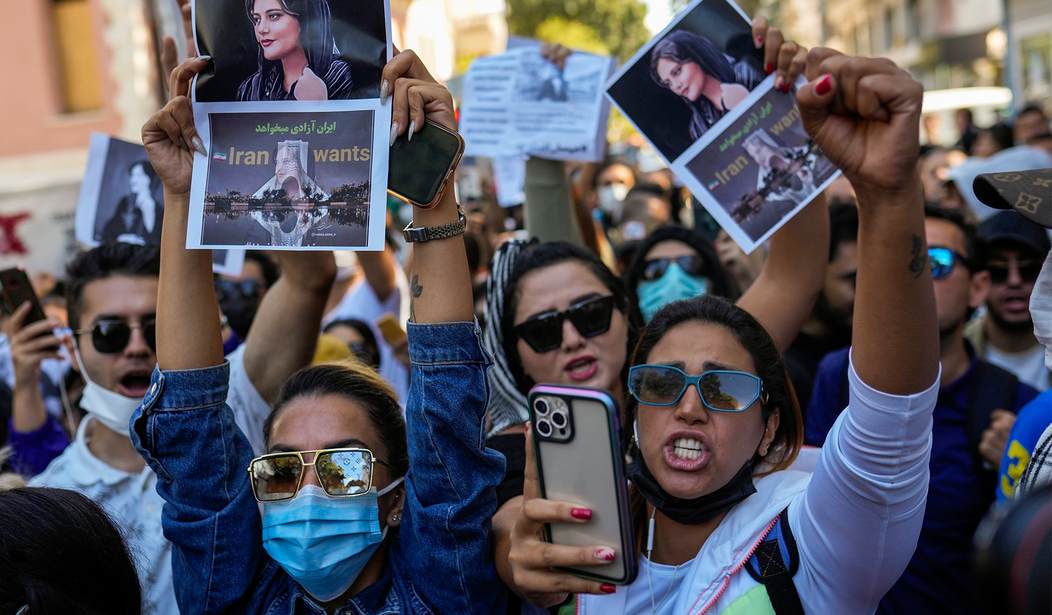With Iranian security agencies once again publicizing crackdowns on “Resistance Units” associated with their principal opposition, Washington is abuzz with chatter that regime officials in Tehran seem increasingly anxious.
On Sunday, a top regime official boasted that individuals associated with Resistance Units were arrested in Khuzestan, Fars, and Kohgiluyeh. They “tried to endanger the country’s security by plots,” said the provincial prosecutor general, expressing alarm that they had “money,” “equipment,” “houses,” and “vehicles.”
The comments, an obvious sign of rattled nerves, followed a series of similar pronouncements by the Ministry of Intelligence and Security (MOIS) and the Islamic Revolutionary Guard Corps (IRGC), highlighting the mullahs’ growing apprehension over the momentum displayed by small teams of organized dissidents operating in various cities to inspire protests and lead anti-regime activities.
On July 2, the official Islamic Republic News Agency (IRNA) quoted a detailed an Intelligence Ministry report that listed numerous Resistance Unit activities in the cities of Kelar Abad, Salman Shahr, Abbas Abad, and Tonekabon in the north, and Behbahan and Gachsaran in the south. The statement gloated about arrests across Tehran, Isfahan, Gilan, and Mazandaran provinces, as well as Kish Island.
“Significantly,” the intelligence report read, “members of these cells all had a history of sabotage during the riots of the fall of 2022, and several of them were imprisoned. Unfortunately, after their release from prison, they resorted to sabotage activities once again.”
The MEK’s Resistance Units have emerged as a potent force for change in Iran, leveraging their organizational capacities to lead and guide nationwide uprisings that have weakened the theocracy by strategically targeting its suppressive centers and inspiring bold acts of rebellion. For this reason, the regime is now trying to intimidate the youth population by preparing to execute a young opposition supporter and boxing champion, Mohammad Javad Vafaei-Sani.
Recommended
The Intelligence Ministry’s report even acknowledged the presence of Resistance Units in each of the country’s four corners. Their considerable operational reach, widening social support, logistical capabilities, and unflagging grassroots activism are telltale indications that a new and sophisticated culture of struggle intent on overthrowing the theocracy has taken root. The Iranian regime’s recent claims that it is proceeding with efforts to dismantle the MEK’s large-scale funding networks is further testament to the group’s support inside the country and the unusual amount of attention paid to them by regime authorities.
The failure to effectively launch domestically against the group may be why the clerics recently betrayed their fears of the MEK on a global stage. In a desperate attempt to thwart their opposition in exile, Iranian officials implored the government of France to prevent a global rally in Paris on July 1. But their appeals were in vain. The rally proceeded with 500 international dignitaries, including former US Vice President Mike Pence, and an impressive roster of current and former officials from five continents. Those in attendance were privy to the 10,000 messages from courageous backers of the Resistance Units inside Iran.
Today, the MEK enjoys the approval of 3,600 leaders across the world that support the movement’s vision for a future democratic Iran and enthusiastic backing by ordinary Iranians inside the country. Unsurprisingly, the regime unleashed threats against Italy earlier this month after the country’s parliament welcomed Maryam Rajavi, the President-elect of the National Council of Resistance of Iran (NCRI), a coalition of opposition groups of which the MEK is a constituent member. A presiding member of the regime’s parliamentary board subsequently warned: “The Italian Parliament will face serious and severe consequences.”
Nevertheless, Rajavi’s emphatic address before the Foreign Affairs Committee and her meetings with numerous parliamentarians galvanized support for her Ten Point Plan, offering a credible blueprint for a free, secular, and democratic republic in Iran. The strong endorsement from majorities in Italy’s legislative chambers illustrated the regime’s mounting vulnerability to its main alternative.
But even as European leaders bear witness to the Iranian people’s continued revolt, US officials too must shake off their apathy and abandon appeasement. It hardly needs saying that the ayatollahs are not a fixture of the Middle East landscape; their rule is brittle and transitory.
By ramping up sanctions imposed on the regime – including its key figures and offshoots, resisting the temptation to rejoin the Iranian nuclear deal, working with regional allies to address Tehran’s belligerence, and insisting on the release of political prisoners in Iran, US officials can ensure that opposition forces are able to spearhead a viable alternative to the ayatollahs while giving hope to those risking arrest and torture to advance the cause of freedom.
And by standing in unison with young Iranians yearning for change, American officials can advance the prospects for a democratic, secular, and non-nuclear republic in Iran.
Change is coming to Iran. When it does, it will come from within.
Prof. Ivan Sascha Sheehan is the associate dean of the College of Public Affairs and past executive director of the School of Public and International Affairs at the University of Baltimore. Opinions expressed are his own. Follow him on Twitter @ProfSheehan

























Join the conversation as a VIP Member